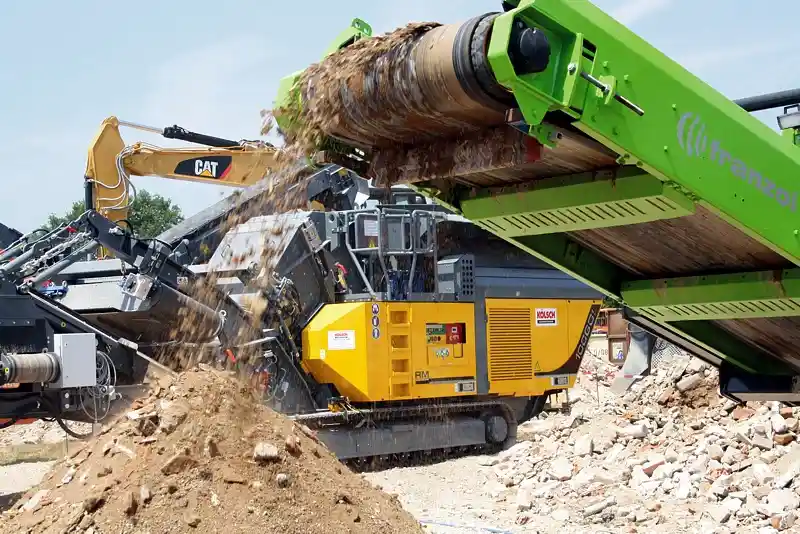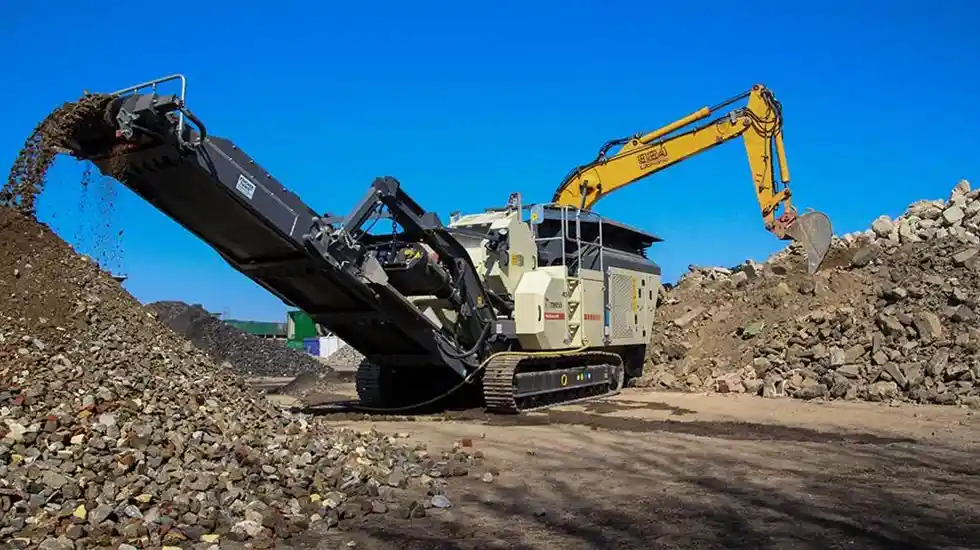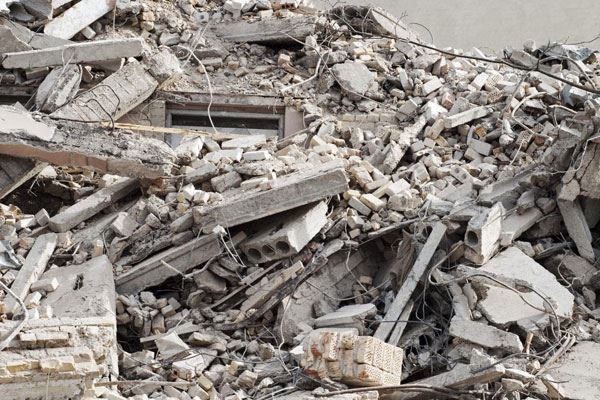In the picturesque town of Littleton, sustainability meets construction as we embark on a journey to recycle and repurpose construction debris. We’re all familiar with the sight of bustling construction sites, but what happens to all that leftover material when the project is done? That’s where the magic of recycling and repurposing comes in. In this guide, L&G Cleaning Service will explore innovative ways to give new life to old building materials, reducing waste and minimizing our environmental footprint. So, whether you’re a builder looking to make a positive impact or a resident curious about our town’s green initiatives, join us on this exciting adventure in sustainability!
Why Recycle and Repurpose Construction Debris:
Recycling and repurposing construction debris in Littleton is not just a noble endeavor; it’s a practical and responsible choice. When we recycle and repurpose materials like concrete, wood, and metals from construction sites, we’re doing our part to protect the environment. It’s a win-win situation. Firstly, it reduces the burden on our already limited landfill space, extending their lifespan and saving valuable land. Secondly, it conserves natural resources and energy since recycling typically requires less energy than extracting and manufacturing new materials. Moreover, it curbs greenhouse gas emissions by reducing the need for resource-intensive production processes. So, not only is it eco-friendly, but it’s also cost-effective, potentially saving both individuals and businesses money. Plus, it often supports local businesses and strengthens the local economy. So, there are many compelling reasons to recycle and repurpose construction debris in Littleton—it’s good for the planet, the wallet, and the community.
Commonly Recycled Materials:
When it comes to recycling construction debris in Littleton, there are several commonly recycled materials that make a significant impact on sustainability efforts, much like the role of construction cleaning services in maintaining a clean and organized construction site. Concrete and bricks, for instance, are prime candidates for recycling. Instead of sending them to the landfill, these heavy-duty materials can be crushed and repurposed as aggregates in new construction projects, reducing the demand for fresh resources. Wood is another valuable resource often salvaged from construction sites. It can find a second life in various ways, from being used for new building projects to being transformed into beautiful furniture or decorative pieces. Metals are also a hot commodity in recycling efforts. Scrap metal from construction sites can be melted down and reused in various applications, saving energy and resources. By focusing on these commonly recycled materials, Littleton can make significant strides toward a more sustainable and environmentally friendly construction industry.

Benefits of Recycling and Repurposing:
Recycling and repurposing construction debris in Littleton offer a host of compelling benefits for both the community and the environment. First and foremost, it’s a powerful waste reduction strategy. By diverting materials from the landfill, we extend the lifespan of these disposal sites, saving valuable land space and reducing the environmental footprint associated with waste disposal. Additionally, recycling and repurposing conserve natural resources and energy since processing recycled materials is often less resource-intensive than extracting and manufacturing new ones. This, in turn, lowers carbon emissions, contributing to a cleaner and healthier environment. Moreover, it’s cost-effective. It can save money for individuals and businesses by reducing waste disposal fees and, in some cases, even offering potential income through the sale of recycled materials. Plus, recycling and repurposing often support local businesses, boosting the local economy. Overall, embracing these practices in Littleton is a sustainable win-win that benefits the planet and the community alike.
Local Initiatives and Programs:
- Recycling Centers: Littleton likely has dedicated recycling centers where residents and businesses can drop off construction debris for proper recycling. These centers often provide guidelines on what materials they accept.
- Curbside Pickup: Check if the city offers curbside pickup services for construction debris. Some municipalities have special pickup days or programs for these materials.
- Recycling Guidelines: Local authorities usually provide detailed guidelines on how to sort and prepare construction debris for recycling. Following these guidelines is crucial for efficient recycling.
- Waste Management Companies: Explore partnerships with local waste management companies that specialize in recycling construction debris. They may offer convenient pickup and recycling services.
- Construction Recycling Programs: Some cities have specific programs or incentives for construction companies to recycle and reduce waste on construction sites. Encourage local builders and contractors to participate in such programs.
- Community Outreach: Stay informed about community events, workshops, or seminars related to recycling and sustainability. These events can provide valuable information on local initiatives and how individuals can get involved.
- Resource Recovery Facilities: Littleton might have resource recovery facilities that process construction debris into reusable materials. Learn about these facilities and their contribution to the local recycling efforts.
- Educational Campaigns: Keep an eye out for local educational campaigns that promote recycling and repurposing. These initiatives can raise awareness and encourage more people to participate.
- Local Partnerships: Explore collaborations with local businesses and organizations that have a vested interest in recycling and sustainability. These partnerships can lead to innovative recycling solutions.
- Government Incentives: Inquire about any government incentives or grants available to support recycling and repurposing initiatives in Littleton. These incentives can help fund projects and make recycling more accessible.
- Compliance with Regulations: Ensure that you and any partners or contractors comply with local regulations related to recycling and waste management. Understanding and following the rules is essential.
- Reporting and Tracking: Stay informed about statistics and reports on the impact of local recycling programs. Tracking progress helps assess the effectiveness of these initiatives.
By exploring and participating in these local initiatives and programs, residents and businesses in Littleton can play an active role in recycling and repurposing construction debris, contributing to a more sustainable and environmentally conscious community.
DIY and Creative Repurposing:
When it comes to recycling and repurposing construction debris in Littleton, there’s room for creativity and DIY innovation. Rather than discarding materials, consider giving them a new lease on life through imaginative projects. For instance, salvaged wood can be transformed into custom-made furniture or used for eye-catching wall décor. Old tiles and bricks can be upcycled into mosaic artwork, adding a unique touch to your home or garden. If you’re particularly crafty, repurpose metal scraps into sculptures or functional items like bookends. The possibilities are endless, and platforms like Pinterest and local craft communities can provide a wealth of inspiration and ideas. Not only do these DIY endeavors reduce waste, but they also add a personal and artistic flair to your surroundings, making Littleton a more vibrant and sustainable place to live.

Contractors and Builders’ Role:
Contractors and builders in Littleton play a pivotal role in the success of recycling and repurposing construction debris efforts, just as understanding the benefits of hiring a professional construction cleaning service is crucial for a clean and organized construction site. They can champion sustainable practices from the ground up by implementing recycling plans on construction sites. This includes segregating materials like concrete, wood, and metal for proper recycling channels. By specifying the use of recycled materials in new projects whenever feasible, they contribute to the circular economy and reduce the demand for virgin resources. Moreover, contractors and builders can source locally whenever possible, supporting the community and reducing transportation-related emissions. Encouraging their teams to follow safety guidelines for handling materials, including hazardous ones, ensures responsible disposal and recycling. Ultimately, their commitment to sustainable construction practices can set an example for the industry and have a positive impact on the environment and Littleton’s future.
Safety and Regulations:
Safety and regulations are paramount when it comes to recycling and repurposing construction debris in Littleton. Ensuring the well-being of workers and the community is of utmost importance. It’s essential to adhere to local safety guidelines and regulations when handling and processing construction materials. Proper disposal of hazardous materials, such as lead-based paints or asbestos, is non-negotiable and requires strict compliance with environmental laws. To avoid accidents and injuries, construction sites should have clear safety protocols in place. This includes providing protective gear for workers, safe storage of materials, and appropriate handling practices. Complying with weight limits and transportation regulations when moving recycled materials also contributes to road safety and prevents accidents. In addition to safety, adhering to recycling and waste disposal regulations set by local authorities is crucial. Familiarize yourself with Littleton’s specific regulations, recycling codes, and zoning laws related to construction waste. Failure to comply not only poses safety risks but can also result in legal consequences and fines. So, when engaging in recycling and repurposing efforts, always prioritize safety and stay in full compliance with the local regulations to ensure a responsible and sustainable approach.
Community Awareness:
- Educational Workshops: Organize workshops or seminars that highlight the importance of recycling construction materials. These events can provide valuable information and tips on how residents and businesses can get involved.
- Publications and Brochures: Create informative brochures or pamphlets explaining the benefits of recycling and how to do it correctly. Distribute these materials at community centers, local events, and businesses.
- Online Resources: Develop a website or social media presence dedicated to recycling in Littleton. Share articles, videos, and success stories to educate and inspire community members.
- Local Partnerships: Collaborate with local schools, colleges, and organizations to incorporate recycling education into their programs. This can include classroom presentations and hands-on activities.
- Community Events: Participate in or host community events and fairs to showcase recycling initiatives. Set up booths with interactive displays to engage residents and answer their questions.
- Demonstration Projects: Implement small-scale recycling and repurposing projects in public spaces. These serve as tangible examples of what can be achieved and inspire others to follow suit.
- Incentive Programs: Consider introducing incentives, such as discounts or recognition, for businesses and individuals who actively participate in recycling efforts. Recognition can encourage others to join in.
- Publicize Success Stories: Share success stories of local businesses or individuals who have made a positive impact through recycling and repurposing. Personal stories can motivate others to take action.
- Community Challenges: Organize friendly recycling challenges or competitions among neighborhoods or schools to promote involvement and friendly rivalry.
- Regular Updates: Keep the community informed about the progress of recycling initiatives, including statistics on materials diverted from landfills and environmental impact.
- Q&A Sessions: Host question-and-answer sessions or forums where residents can ask experts about recycling and get clarifications on any concerns they may have.
By fostering community awareness through these initiatives, Littleton can inspire more residents, businesses, and organizations to actively participate in recycling and repurposing construction debris, contributing to a more sustainable and environmentally conscious community.
Measuring Impact:
Measuring the impact of recycling and repurposing construction debris in Littleton is crucial to understanding the effectiveness of sustainability efforts, much like the importance of preventing mold after construction for maintaining a healthy indoor environment. By keeping track of key metrics, such as the volume of materials diverted from landfills, the reduction in waste disposal costs, and the amount of energy and resources saved through recycling, we can gauge the positive effects on both the environment and the community’s finances. Additionally, tracking the decrease in greenhouse gas emissions resulting from reduced manufacturing and transportation of new materials is another critical indicator of success. Regular reports and updates on these metrics not only demonstrate the tangible benefits of recycling but also provide motivation for continued efforts and innovations in the pursuit of a more sustainable and eco-friendly Littleton.

FAQ’s:
What can be recycled in Littleton Colorado?
In Littleton, Colorado, common recyclables typically include paper, cardboard, glass bottles and jars, aluminum and steel cans, and certain plastics (usually marked with recycling symbols 1-7), but it’s essential to check with the local recycling program or facility for specific guidelines and accepted materials.
What can you do with construction and demolition waste?
Construction and demolition waste can be recycled or repurposed by salvaging materials like wood, concrete, and metal for reuse in new construction projects, reducing waste and conserving resources.
What are the repurposed materials in construction?
Repurposed materials in construction can include reclaimed wood, salvaged bricks, recycled glass, and repurposed metal fixtures, which are used to create sustainable and unique building elements.
How can we reuse debris?
Debris can be reused by transforming it into new construction materials, such as crushed concrete for road bases, reclaimed wood for furniture, or repurposed bricks for landscaping projects.
What is construction waste or debris?
Construction waste or debris refers to the materials and by-products generated during construction, renovation, or demolition activities, including concrete, wood, drywall, metal, and other discarded materials.
CONCLUSION:
In conclusion, recycling and repurposing construction debris in Littleton are essential steps towards a more sustainable and environmentally conscious community. By diverting materials from landfills, conserving resources, and reducing our carbon footprint, we can create a more eco-friendly future. It’s not only about protecting our environment but also about supporting local businesses and fostering creativity through DIY projects. Contractors, builders, and the entire community have a role to play in this journey. With proper awareness, safety measures, and a commitment to measuring our impact, we can collectively contribute to a greener, cleaner, and more vibrant Littleton. So, let’s continue to work together to build a brighter and more sustainable tomorrow, one piece of repurposed construction debris at a time.
The post Recycling and Repurposing Construction Debris in Littleton appeared first on L&G Cleaning Services.

